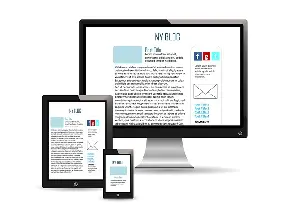How can I stay up-to-date with new technologies and best practices?
Published:
 In today’s fast-paced technological landscape, software developers must stay up-to-date with new technologies and best practices in order to remain competitive and effective in their roles. This includes mastering skills such as agile development, software programming, and monitoring and logging practices. Fortunately, there are multiple avenues that developers can take to continue learning and staying informed throughout their careers. These include attending conferences, reading industry-related publications, and participating in online learning communities.
In today’s fast-paced technological landscape, software developers must stay up-to-date with new technologies and best practices in order to remain competitive and effective in their roles. This includes mastering skills such as agile development, software programming, and monitoring and logging practices. Fortunately, there are multiple avenues that developers can take to continue learning and staying informed throughout their careers. These include attending conferences, reading industry-related publications, and participating in online learning communities.
Attend conferences and workshops:
 Attending conferences and workshops is an excellent way to stay up-to-date with new technologies and best practices. There are many conferences and workshops that focus on specific technologies or programming languages, as well as more general events that cover a wide range of topics related to software development. Some of the benefits of attending conferences and workshops include:
Attending conferences and workshops is an excellent way to stay up-to-date with new technologies and best practices. There are many conferences and workshops that focus on specific technologies or programming languages, as well as more general events that cover a wide range of topics related to software development. Some of the benefits of attending conferences and workshops include:
Learning from experts: Many conferences and workshops feature presentations and lectures by leading experts in the field. These can be an excellent opportunity to learn about the latest technologies and best practices from those who have firsthand experience using them.
Networking: Conferences and workshops can provide an opportunity to network with other professionals in the field. This can be especially valuable for building relationships with others who are working on similar projects, or who have expertise in areas that you are interested in.
Discovering new tools and resources: Conferences and workshops often feature exhibitions and demonstrations of the latest tools and resources that are available to software developers. This can be a great way to learn about new technologies and how they can be applied in your work.
Staying motivated and engaged: Attending conferences and workshops can be a great way to stay motivated and engaged in your work. Being around other professionals who are passionate about software development can be energizing and inspiring, and can help to keep you motivated to continue learning and growing in your career.
To get the most out of conferences and workshops, it is important to plan ahead and set specific goals for what you hope to achieve. This can help you to focus your time and resources and to make the most of the opportunity.
Some popular conferences for software developers include:
Microsoft Build: A conference for developers hosted by Microsoft, featuring presentations on the latest technologies and best practices for building applications with Microsoft tools and platforms.
Google I/O: A conference for developers hosted by Google, featuring presentations on the latest technologies and best practices for building applications with Google tools and platforms.
Apple Worldwide Developers Conference (WWDC): A conference for developers hosted by Apple, featuring presentations on the latest technologies and best practices for building applications with Apple tools and platforms.
O’Reilly Software Architecture Conference: A conference focused on software architecture and design, featuring presentations by leading experts in the field.
ACM SIGGRAPH: A conference focused on computer graphics and interactive techniques, featuring presentations on the latest technologies and best practices in the field.
PyCon: A conference focused on the Python programming language, featuring presentations on the latest technologies and best practices for using Python in software development.
JavaOne: A conference focused on the Java programming language, featuring presentations on the latest technologies and best practices for using Java in software development.
DrupalCon: A conference focused on the Drupal content management system, featuring presentations on the latest technologies and best practices for building and maintaining websites with Drupal.
Devoxx: A conference for developers featuring presentations on a wide range of topics related to software development, including programming languages, tools, and best practices.
Black Hat: A conference focused on cybersecurity and information security, featuring presentations on the latest technologies and best practices for protecting against security threats.
Follow online resources:
 There are many online resources that can help you to stay informed about new technologies and best practices in the field of software development. Some of the types of online resources that you might consider following include:
There are many online resources that can help you to stay informed about new technologies and best practices in the field of software development. Some of the types of online resources that you might consider following include:
Blogs: Many software developers and companies maintain blogs that cover topics related to their work. These can be a great source of information about new technologies and best practices, as well as insights and tips from those who are working in the field.
Podcasts: Podcasts are audio or video programs that can be downloaded or streamed online. There are many podcasts that cover topics related to software development, and these can be a great way to stay informed while you are on the go.
Online communities: There are many online communities that bring together software developers from around the world. These can be a great way to ask questions, get feedback, and connect with others who are working in the field. Some popular online communities for software developers include Stack Overflow, Reddit, and Quora.
Industry publications and newsletters: Many industry publications and newsletters cover topics related to software development and technology. These can be a great way to stay informed about the latest trends and developments in the field.
To make the most of online resources, it is important to be selective about what you follow. There is a lot of information available online, and it can be overwhelming if you try to follow everything. Instead, focus on a few key resources that are most relevant to your interests and needs. You might also consider setting up a system to keep track of the information that you come across, such as using a newsreader or bookmarking tool.
Some popular online blogs for software developers include:
The Verge: A technology and culture blog that covers a wide range of topics related to software development, including the latest technologies, best practices, and industry trends.
Engadget: A technology blog that covers a wide range of topics, including software development, hardware, and consumer technology.
Ars Technica: A technology and culture blog that covers a wide range of topics, including software development, hardware, and consumer technology.
TechCrunch: A technology blog that covers a wide range of topics, including software development, startups, and venture capital.
The Register: A technology news and opinion blog that covers a wide range of topics, including software development, hardware, and consumer technology.
Gizmodo: A technology and culture blog that covers a wide range of topics, including software development, hardware, and consumer technology.
ZDNet: A technology news and analysis blog that covers a wide range of topics, including software development, hardware, and consumer technology.
VentureBeat: A technology news and analysis blog that covers a wide range of topics, including software development, startups, and venture capital.
The Next Web: A technology and culture blog that covers a wide range of topics, including software development, hardware, and consumer technology.
The Hacker News: A technology news and analysis blog that covers a wide range of topics, including software development, cybersecurity, and information security.
Some popular podcasts for software developers include:
Software Engineering Daily: A daily podcast that covers a wide range of topics related to software development, including programming languages, tools, and best practices.
The Changelog: A weekly podcast that covers a wide range of topics related to software development, including programming languages, tools, and best practices.
Full Stack Radio: A weekly podcast that covers a wide range of topics related to software development, including programming languages, tools, and best practices.
.NET Rocks!: A weekly podcast that covers a wide range of topics related to the .NET programming framework, including C#, F#, and other technologies.
CodeNewbie: A weekly podcast for people who are new to software development, featuring interviews with experienced developers and tips for getting started in the field.
The Bike Shed: A weekly podcast that covers a wide range of topics related to software development, including programming languages, tools, and best practices.
Functional Geekery: A weekly podcast that covers a wide range of topics related to functional programming, including programming languages, tools, and best practices.
The Ruby Rogues: A weekly podcast that covers a wide range of topics related to the Ruby programming language, including programming languages, tools, and best practices.
The Web Ahead: A weekly podcast that covers a wide range of topics related to web development, including programming languages, tools, and best practices.
The Java Posse: A weekly podcast that covers a wide range of topics related to the Java programming language, including programming languages, tools, and best practices.
Some popular online communities for software developers include:
Stack Overflow: A question-and-answer website for programmers, where users can ask and answer questions about a wide range of programming topics.
Reddit: A social news and entertainment website that includes a large number of communities (called “subreddits”) focused on various topics, including software development.
Quora: A question-and-answer website where users can ask and answer questions about a wide range of topics, including software development.
GitHub: A web-based hosting service for version control using Git, which is a popular version control system for software development. GitHub also includes a large community of developers who use the platform to share and collaborate on code.
LinkedIn: A business-oriented social networking service that includes a large number of groups focused on various topics, including software development.
Meetup: A website that helps users find and join local groups that meet in person to discuss various topics, including software development.
CodePen: A social development platform that allows users to share and collaborate on HTML, CSS, and JavaScript projects.
CodeProject: A community of developers that includes a large number of articles and tutorials related to software development, as well as forums where users can ask and answer questions.
DZone: A community of developers that includes a large number of articles and tutorials related to software development, as well as forums where users can ask and answer questions.
Dev.to: A community of developers that includes a large number of articles and tutorials related to software development, as well as forums where users can ask and answer questions.
Participating in online courses and training programs:
 Participating in online courses and training programs is a great way for software developers to stay up-to-date with new technologies and best practices. There are many options available, ranging from free courses and training programs offered by online communities and websites, to paid courses and training programs offered by educational institutions and professional organizations.
Participating in online courses and training programs is a great way for software developers to stay up-to-date with new technologies and best practices. There are many options available, ranging from free courses and training programs offered by online communities and websites, to paid courses and training programs offered by educational institutions and professional organizations.
Some popular online courses and training programs for software developers include:
Coursera: A platform that offers a wide range of online courses and training programs in a variety of subjects, including computer science, software development, and data science. Coursera courses are taught by professors and experts from top universities and institutions, and many of them offer certificates upon completion.
edX: A platform that offers a wide range of online courses and training programs in a variety of subjects, including computer science, software development, and data science. edX courses are taught by professors and experts from top universities and institutions, and many of them offer certificates upon completion.
Udemy: A platform that offers a wide range of online courses and training programs in a variety of subjects, including computer science, software development, and data science. Udemy courses are taught by experts and professionals in their field, and many of them offer certificates upon completion.
Khan Academy: A non-profit educational organization that offers a wide range of online courses and training programs in a variety of subjects, including computer science and software development. Khan Academy courses are free to take, and they do not offer certificates upon completion.
Codeacademy: A platform that offers a wide range of online courses and training programs in a variety of programming languages and technologies, including HTML, CSS, JavaScript, Python, and more. Codeacademy courses are designed to be interactive and hands-on, and they offer certificates upon completion.
By participating in online courses and training programs, software developers can learn new skills and technologies, stay up-to-date with the latest developments in the field, and improve their overall knowledge and expertise.
Joining a user group:
Joining a user group is a great way for software developers to connect with others in their field and learn about new technologies and best practices. User groups are typically made up of individuals who have an interest in a specific area of software development, such as a particular programming language, tool, or platform.
User groups usually meet in person at regular intervals, such as once a month or once a quarter. At these meetings, members can discuss their work, share knowledge and expertise, and learn about new technologies and best practices. Some user groups also invite guest speakers to present on topics of interest to their members.
There are many user groups for software developers to choose from, and they can be found in most major cities.
Some popular user groups for software developers include:
Python User Group: A group for individuals who are interested in the Python programming language.
JavaScript User Group: A group for individuals who are interested in the JavaScript programming language.
Java User Group: A group for individuals who are interested in the Java programming language.
.NET User Group: A group for individuals who are interested in the .NET platform and related technologies.
Linux User Group: A group for individuals who are interested in the Linux operating system and related technologies.
Joining a user group is a great way for software developers to connect with others in their field, learn about new technologies and best practices, and stay up-to-date with the latest developments in the field.
Experimenting and building your own projects:
Experimenting and building your own projects is a great way for software developers to learn new skills and technologies, and to apply their knowledge in a practical setting. By building your own projects, you can learn by doing, and you can get hands-on experience with different tools, technologies, and best practices.
There are many different types of projects that software developers can build, ranging from simple programs and scripts, to complex applications and systems.
Some ideas for projects that software developers might want to consider include:
Building a simple program or script in a programming language that you are learning. For example, you might build a simple calculator program in Python, or a script that automates a task in Bash.
Building a web application using a framework like Django or Rails. This could be a simple application, such as a blog or a to-do list, or a more complex application with multiple features and functionality.
Building a mobile application using a framework like React Native or Flutter. This could be a simple application, such as a weather app or a calculator, or a more complex application with multiple features and functionality.
Building a machine learning model or algorithm. This could be a simple model, such as a linear regression model, or a more complex model, such as a neural network.
Building a game or a simulation. This could be a simple game, such as a text-based adventure, or a more complex game, such as a 3D first-person shooter.
By experimenting and building your own projects, you can learn new skills and technologies, and you can apply your knowledge in a practical setting. This can be a great way to improve your knowledge and expertise as a software developer.